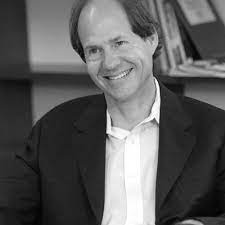 | Cass Robert Sunstein is an American legal scholar known for his studies of constitutional law, administrative law, environmental law, and law and behavioral economics. He is also The New York Times best-selling author of The World According to Star Wars (2016) and Nudge (2008). |
What motivated you to work on Behavioural Science?
My interest started in opposition to rational actors models, in use at the University of Chicago, where I began my academic career. I wanted to find a more accurate understanding of how people choose and decide. The work of Kahneman, Tversky, and Thaler was an inspiration for rethinking many issues in law and policy.
What do you think is the future of Behavioural Science in the next five, and ten years? What major challenges do you foresee?
In terms of theory: Understanding attention, and modeling it. (The issues here are very difficult; that is the major challenge.)
In terms of theory: Understanding adaptation. (We know a lot but the empirical issues are hard.)
In terms of theory and practice: Understanding the impact of social media, and how to make it better.
In terms of practice: Using behavioral science to see how to reduce poverty and human suffering. There is so much more to learn there.
In terms of practice: Going beyond “mass” nudges to consider distributional effects.
Which behavioural scientist(s) do you admire the most and why?
Daniel Kahneman, because of his creativity and originality George Loewenstein, because of his brilliance and range Richard Thaler, because he is the Charles Dickens of our era Hunt Allcott, because he is moving the frontiers Alex Imas, because he is seeing things no one else has seen John List, because he solves so many puzzles (I admire many others!)
What advice would you give to a beginner in Behavioural Science? What are some of the crucial skills one has to develop to succeed in this field?
1) Study economics; really understand the basics
2) Have fun with your work!
If you were starting your career again today, what would you do differently?
1) Learn how to hit a topspin forehand, to improve my tennis.
2) Maybe take more economics courses in college, but I was a literature major, and maybe that was the best route for me.
What books/publications would you like to recommend to our readers?
Scarcity, by Mullainathan and Shafir
Misbehaving, by Richard Thaler
The Voltage Effect, by John List (forthcoming 2022)
Against Autonomy, by Sarah Conly
What is your favourite quote in Behavioural Science?
“Nothing in life is as important as you think it is when you are thinking about it.” – Daniel Kahneman
If you could interview any one fictional or historical figure, who would you choose and why?
Jesus Christ.
Tell us something that’s true that almost nobody agrees with you on.
Possession, by A.S. Byatt, is the greatest novel in the English language. (Ever.)
Tell us something interesting about yourself most people don’t know.
I am an avid squash player; I played on a national championship team in college and I play at least twice a week these days. (I aim for four, and would prefer seven.)
How do you apply the notions of Behavioural Science in your personal life?
I often think, if I were advising someone who has the problem I have, what advice would I give? That helps me to get a kind of distance, which helps.
Thank you very much for sharing, I learned a lot from your article. Very cool. Thanks. nimabi